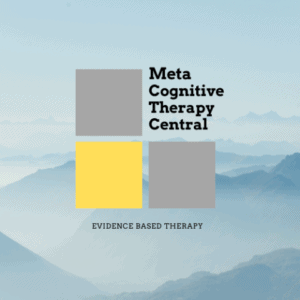
According to MCT, worrying is a central part of anxiety disorders. Worry is part of the CAS (the cognitive-attentional syndrome) and is a chain of negative thoughts aimed at solving problems. There are two types of worry: type 1 and type 2 worry.
Type 1 worry is usually triggered as a coping strategy in response to intrusive negative thoughts, and it is general worry about external events and social and physical health concerns. Type 1 worry is activated by positive metacognitive beliefs like “worrying means I will be prepared”.
Type 2 worry is worrying about worry: I am losing control; I am going crazy; I am harming my body. Type 2 worry is activated by negative metacognitive beliefs like “I have no control over worry” “I could lose my mind with worrying” and “Worrying will damage my body”.
Type 1 and type 2 worry preserve anxiety symptoms, and the person experiencing anxiety typically uses unhelpful coping strategies to control worrying. These strategies usually backfire and make it difficult to break the worry cycle.
Aside from worrying, patients who suffer from anxiety activate several CAS strategies to cope:
Seeking reassurance to stop worrying
Threat monitoring for signs of danger and anxiety
Suppressing intrusive negative thoughts
Avoiding situations and triggers of anxiety
Searching for information to disconfirm their anxious thoughts
Distracting oneself to stop worrying
Using alcohol to cope with anxiety
MCT focuses on reducing the patient’s worry and changing negative and positive metacognitive beliefs about worry. MCT also aims at reversing the CAS strategies that maintain anxiety.
Helpful posts about anxiety
Metacognitive Therapy for Anxiety – Everything You Need To Know
Metacognitive Theory of Anxiety – Can Metacognition Cause Anxiety?
Metacognitive Therapy Improves Depression and Anxiety in Heart Disease Patients
Metacognitive Therapy for Health Anxiety
How Attention Training Technique Can Improve Social Anxiety
Metacognitive therapy for anxiety compared with other treatments
